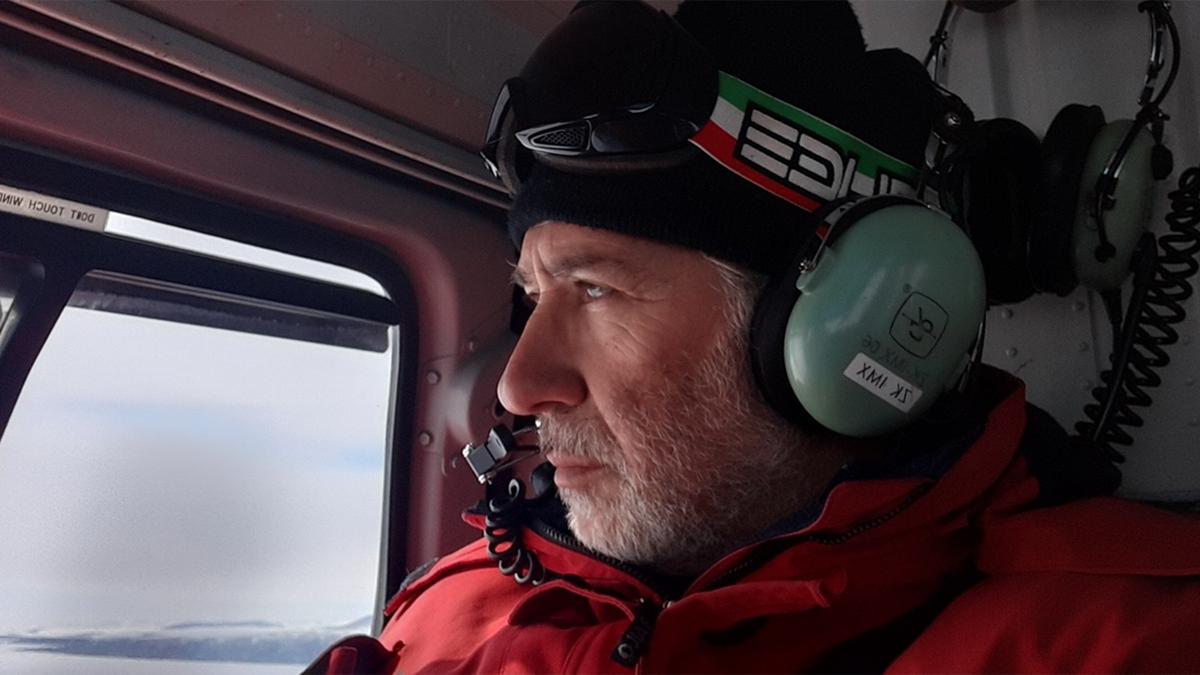Editors’ Vox is a blog from AGU’s Publications Department.
In January 2018, I assumed the role of Editor-in-Chief of Reviews of Geophysics (RoG), and I must say that the experience I’ve gained has been invaluable. It is a position of immense responsibility within our community, and I have approached it with a deep sense of duty and accountability.
My primary goal has been to uphold and enhance the journal’s esteemed reputation.
My primary goal has been to uphold and enhance the journal’s esteemed reputation, closely working with the team of editors to ensure continuity with the exceptional work of the previous Editor-in-Chief, Mark Moldwin.
In an editorial, we laid out our vision for what constitutes a comprehensive review article. Since then, and throughout my tenure as Editor-in-Chief, we have closely collaborated with authors to realize this vision.
We built a robust and diverse team of editors, paying attention to gender and geographic diversity. We then implemented a comprehensive reorganization of the editorial process and introduced a novel approach to assess submitted contributions, as highlighted in our recent editorial “60 Years and Beyond of Reviews of Geophysics”. Beyond the historical aspect of that editorial, it is particularly important for each author aspiring to submit an article to Reviews of Geophysics because, in simple and extremely clear terms, it explains how a proposal and then a submitted article should be structured.
During these years, we invited top comprehensive review articles across diverse disciplines within the Earth and space sciences. Notably, these endeavors resulted in a substantial increase in all journal’s metrics (e.g. JIF =25.2; CiteScore = 47.2; Journal Citation Indicator = 2.5) and readership.
I firmly believe that review papers should transcend mere summaries of existing literature and avoid presenting unpublished data. Instead, they should serve as indispensable guides, offering essential context for ongoing research endeavors and future perspectives. These papers should provide a framework that facilitates a deeper understanding of processes, progresses, challenges, and interconnections across various communities, observations, models, and methodologies.
Review papers not only become invaluable resources for researchers but also stimulate new ideas and avenues for future exploration.
By offering this broader perspective, review papers not only become invaluable resources for researchers but also stimulate new ideas and avenues for future exploration. Rather than merely reiterating existing research, review papers should challenge readers to think critically and push the boundaries of current knowledge.
Crafting such papers is undoubtedly a challenging endeavor, requiring both a profound understanding of the field and a willingness to engage with diverse ideas and perspectives. Nevertheless, we believe that the rewards of such efforts are immeasurable. By striving to produce impactful review papers, we make significant contributions to the advancement of our fields and play a crucial role in shaping the future of research.
When Reviews of Geophysics was first established in February 1963, the landscape of journals and publications was vastly different. Since then, there has been a significant increase in the number of journals and publications available. Journals like RoG are pivotal for the future of science. With knowledge expanding rapidly and diversifying, it is essential to have access to studies that offer a current and comprehensive view. This is particularly beneficial for emerging researchers entering the field and for established researchers seeking to stay abreast of the latest advancements in geophysics. That’s why RoG focuses on covering a wide range of important topics in an easy-to-understand way. It also tries to include ideas about what future research could look like. For articles published in RoG the main goal must be to add a lot of value to the ever-changing world of science.
Thank you!
I owe a great deal to my colleague editors, both present and past, with whom we have collectively steered Reviews of Geophysics to its status as a leading journal in the Earth and space sciences community.
I owe a great deal to my colleague editors, both present and past, with whom we have collectively steered Reviews of Geophysics to its status as a leading journal in the Earth and space sciences community. Their contribution to the development and success of the journal has been fundamental.
I would like to extend my gratitude to: Valerio Acocella, Robert Bingham, Emily Brodsky, Annmarie Carlton, Kate Chen, Michel Crucifix, Paolo D’Odorico, Qingyun Duan, Andrew Gettelman, Jasper Halekas, Ruth Harris, Tomo Katsura, Mark Moldwin, Gesine Mollenhauer, Greg S. Okin, Thomas H. Painter, Alan Robock, Eelco Rohling, Claudine Stirling, and Yusuke Yokoyama.
Finally, thanks to the staff in the AGU Publications Department, past and present, all of whom have played a crucial role in this editorial journey: Sarah Dedej, Julie Dickson, Matthew Giampoala, Lorraine Hall-Petty, Brooks Hanson, Sophie Hanson, Jenny Lunn, Marilyn Meadows, Chris Micucci, Jeanette Panning, Mia Ricci, Brian Sedora, Randy Townsend, Paige Wooden, and Wenbai Yang.
I would like to welcome the newly appointed Editor-in-Chief, Qingyun Duan. I have full confidence in his leadership and ability to further advance the journal’s role and reputation.
—Fabio Florindo ([email protected]; ![]() 0000-0002-6058-9748), Istituto Nazionale di Geofisica e Vulcanologia, Italy
0000-0002-6058-9748), Istituto Nazionale di Geofisica e Vulcanologia, Italy
Learn more about the incoming Editor-in-Chief, Qingyun Duan.

